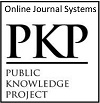PERAN ORANG TUA TERHADAP WINNING SKILLS ANAK: STUDI KASUS DI TK ABA AL-MANAR SOOKA KABUPATEN PACITAN
Abstract
Keywords
Full Text:
PDF (Bahasa Indonesia)References
Baddeley, A. (2012). Working memory: Theories, models, and controversies. Annual Review of Psychology, 63. https://doi.org/10.1146/annurev-psych-120710-100422
Bandura, A. (1977). Social Learning Theory Englewood Cliffs, N.J.: Prentice-Hall. Group & Organization Studies, 2(3).
Baumrind, D. (1967). Child care practices anteceding three patterns of preschool behavior. Genetic Psychology Monographs, 75(1).
Bornstein, M. H. (2019). Handbook of parenting: Biology and ecology of parenting. In Handbook of Parenting: Biology and Ecology of Parenting (Vol. 2). https://doi.org/10.4324/9780429401459
Brummett, B. (2020). Techniques of Close Reading. In Techniques of Close Reading. https://doi.org/10.4135/9781071802595
Duckworth, A. L., Taxer, J. L., Eskreis-Winkler, L., Galla, B. M., & Gross, J. J. (2019). Self-Control and Academic Achievement. In Annual Review of Psychology (Vol. 70). https://doi.org/10.1146/annurev-psych-010418-103230
Eddles-hirsch, K. (2015). Phenomenology and Educational Research. International Journal of Advanced Research (The University of Notre Dame Australia), 3(8).
Eisenberg, N., Spinrad, T. L., & Eggum, N. D. (2010). Emotion-related self-regulation and its relation to children’s maladjustment. In Annual Review of Clinical Psychology (Vol. 6). https://doi.org/10.1146/annurev.clinpsy.121208.131208
Grolnick, W. S., & Ryan, R. M. (1989). Parent Styles Associated With Children’s Self-Regulation and Competence in School. Journal of Educational Psychology, 81(2). https://doi.org/10.1037/0022-0663.81.2.143
Hamed Hilal, A., & Said Alabri, S. (2013). Using NVivo for data analysis in qualitative research. International Interdisciplinary Journal of Education, 2(2).
Harahap, F. S. (2022). Learning to Read with Montessori Method. Scientia Journal, 11(2).
Hill, N. E., & Tyson, D. F. (2009). Parental Involvement in Middle School: A Meta-Analytic Assessment of the Strategies That Promote Achievement. Developmental Psychology, 45(3). https://doi.org/10.1037/a0015362
Insani, A., Yufiarti, & Yetti, E. (2021). Parental Involvement and Mothers’ Employment on Children’s Independence During Covid-19 Pandemics. JPUD - Jurnal Pendidikan Usia Dini, 15(1). https://doi.org/10.21009/jpud.151.02
Mayer, J. D., Salovey, P., & Caruso, D. R. (2004). Emotional intelligence: Theory, findings, and implications. In Psychological Inquiry (Vol. 15, Issue 3). https://doi.org/10.1207/s15327965pli1503_02
New, M. (1990). Developmental psychology: Childhood and adolescence. Behaviour Research and Therapy, 28(5). https://doi.org/10.1016/0005-7967(90)90171-e
Powe, P. M., VanHook, C., Collier, A., Nakhla, M., Crum, I., Hamm, M., & Miller, E. (2024). Black Fathers’ Perspectives About Early Childhood Adversity and Toxic Stress: Results From Focus Groups. Families in Society, 105(2). https://doi.org/10.1177/10443894231193867
Salwiah, S., & Asmuddin, A. (2022). Membentuk Karakter Anak Usia Dini melalui Peran Orang Tua. Jurnal Obsesi : Jurnal Pendidikan Anak Usia Dini, 6(4). https://doi.org/10.31004/obsesi.v6i4.1945
Treptow, R. L. (2017). ORDINARY MAGIC: RESILIENCE IN DEVELOPMENT ANN S. MASTEN New York: Guilford Press, 2014, 370 pp., ISBN: 978-1-4625-1716-9. Infant Mental Health Journal, 38(2). https://doi.org/10.1002/imhj.21625
Wahyutini, A., Noormawanti, N., & Marlisa, L. (2023). POLA ASUH ORANGTUA TERHADAP PERKEMBANGAN SOSIAL EMOSIONAL ANAK USIA DINI DESA RAJABASA BANDARLAMPUNG. Thufulah: Jurnal Ilmiah Mahasiswa, 2(2). https://doi.org/10.24127/thufulah.v2i2.5205
Werner, E. E., & Smith, R. S. (1992). Overcoming the odds: High risk children from birth to adulthood. In Overcoming the odds: High risk children from birth to adulthood.
DOI: http://dx.doi.org/10.22373/bunayya.v11i1.30084
Refbacks
- There are currently no refbacks.
Copyright (c) 2025 anik puji rahayu, Ezif Rizqi Imtihana

This work is licensed under a Creative Commons Attribution-ShareAlike 4.0 International License.
Bunayya: Jurnal Pendidikan Anak has been indexed by:
Support By: Collaborated With:
Visitors:














